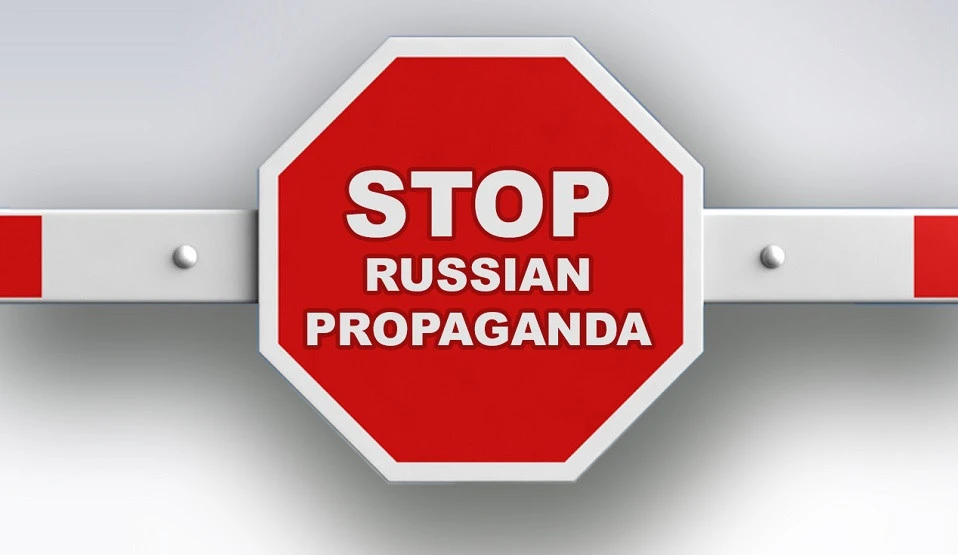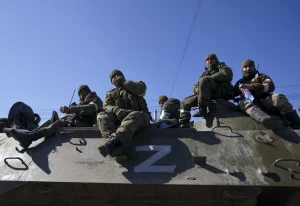
How Kremlin's propaganda media influence Russian speakers in EU
The EU is bewildered by the pro-Kremlin attitudes of Russian-speaking citizens, who are likely impacted by regular consumption of Russian propaganda
European researchers often contemplate why Russian emigrants, residents of Russian descent, and Russian speakers in EU countries tend to support the Kremlin.
It seems senseless that individuals living in open and democratic societies, having fled Putin's authoritarian regime and its restrictions on free speech, would endorse the same dictatorship.
This paradox may be explained by the influence of Russian propaganda and Kremlin disinformation. Many Russian-speaking residents and immigrants in the EU consume Russian media and television regularly.
To explore this hypothesis, Insight News conducted a brief study to analyze the interest levels of the Russian-speaking audience in Europe and the volume of views from Russian news sources, which frequently disseminate disinformation to discredit the West and Ukraine.
Traffic analysis of Russian media outlets prohibited by the EU
The analysts examined the website analytics of Russia-based sites sanctioned by the EU for spreading Kremlin propaganda. In 2022, the EU imposed sanctions on RT (Russia Today) and Sputnik, which are Kremlin-backed international multilingual media outlets.
EU leadership stated that these Russian media outlets were running a "propaganda campaign justifying aggression against Ukraine and targeting EU civil society." RT France attempted to appeal the decision, but the European Court of Justice upheld the ban.
In May 2024, the EU Council introduced fresh sanctions targeting Russian propaganda. This initiative led to the prohibition of the pro-Russian web portal Voice of Europe, located in the Czech Republic, alongside three Russian media entities: the state-operated RIA Novosti, the government-controlled Rossiyskaya Gazeta, and Vesti.
These sanctions entail blocking access to the websites of these media organizations within the European Union. The EU alleges that these outlets are engaged in disseminating "Russian propaganda," particularly in the context of Russia’s ongoing conflict with Ukraine.
The EU Council highlighted that these media entities are subject to continuous direct or indirect oversight by the leadership of the Russian Federation and have significantly bolstered Russia’s aggressive actions in Ukraine.
Russian news websites’ audiences in the EU
Recent analysis of Russian media websites affected by new sanctions reveals significant traffic from France, Germany, and other European nations. Ria-Novosti, for example, garners 1.32 million monthly views in France, with Stratpol identified as a major source of incoming traffic. In Germany, Ria-Novosti achieves even higher traffic at 16.56 million monthly views, likely due to its appeal among the large Russian-speaking community there.
Similarly, Rossiyskaya Gazeta maintains popularity in both countries, with Rg.ru receiving 674,000 monthly views in France and Iz.ru 1.155 million monthly views. Despite the EU sanctions, data from SimilarWeb indicates stable traffic for these websites over the past couple of years.
Additionally, the traffic on Tsargrad.tv, subject to US and EU sanctions since 2022, was also reviewed. “The Russia-based company Tsargrad OOO is a cornerstone of Malofeyev’s broad malign influence network. Tsargrad spreads pro-Kremlin propaganda and disinformation that is amplified by the GoR. Tsargrad served as an intermediary organization between pro-Russian European politicians and GoR officials and recently pledged to donate more than $10 million to support Russia’s unprovoked war against Ukraine,” the US Treasury Department reported.
Analysts successfully accessed Tsargrad.tv from French and German locations, where the website featured extensive coverage praising Russian military actions against Ukrainians labeled as "enemies." Despite sanctions, Russian speakers in Germany, France, and other EU countries can still reach the site.
SimilarWeb data shows Tsargrad.tv receives 177,000 monthly views in France and 421,000 in Germany. This highlights its role as a sanctioned platform for Russian propaganda, actively promoting Russian influence and openly supporting aggression against Ukraine, including attacks by Russian troops on Ukrainians.
Russian news in Google search results
When Russian-speaking users search for news on platforms like Google, the scale of their interest is notable. In Germany alone, Google Keyword Planner data reveals 368,000 searches monthly for 'новости' (news) in Russian. When combined with searches for 'Russia news', 'Germany news', and 'Ukraine news', the total reaches 1 million searches per month in Germany alone.
Ria-Novosti, despite EU sanctions, remains prominent in Google searches across Europe, appearing in the top 3 results for keywords like 'news', 'Ukraine news', 'news from Russia', and others. In France and Germany, Ria-Novosti attracts over 50,000 and 30,000 clicks respectively. The site remains accessible within the EU without requiring a VPN.
Similarly targeted by sanctions, Rossiyskaya Gazeta (rg.ru) and Izvestiya (iz.ru) also capitalize on organic search traffic. Rossiyskaya Gazeta sees 37,000 visitors monthly from Google in Germany, while Izvestiya garners nearly 50,000 visits. These sites continue to operate in France without VPN usage.
On Google Discover, however, there's a shift: new algorithms now favor content suggestions, generating 60–70% of total traffic for media websites, impacting Russian propaganda outlets which are gradually losing visibility there.
In France, visibility shifts towards articles from Russian opposition news (Meduza), Euronews in Russian, BBC Russian, Ukrainska Pravda, and Interfax, sidelining sanctioned Russian media outlets.
Despite these shifts, Russian propaganda sites subject to EU sanctions maintain strong visibility in regular search results, often outperforming independent news outlets like Meduza and RFI. This is attributed to their adeptness in manipulating search algorithms to inflate their rankings and authority.
These outlets consistently portray positive coverage of Moscow's policies and pro-Russian sentiments in Europe, aligning closely with Eurosceptic parties such as Germany's AfD and France's National Rally.
Russian speakers across Europe are affected by Russian media
Russian propaganda and news websites wield significant influence among Russian speakers in Europe despite sanctions. These platforms promote Kremlin narratives, aiming to destabilize trust in national governments, provoke protests, and create discord across European nations.
These outlets strongly influence Russian-speaking audiences in the EU, endorsing Kremlin agendas and spreading their narratives. This influence extends to recruitment for pro-Kremlin causes by Russian intelligence services. Recent incidents, like the controversial placement of coffins labeled "French soldiers of Ukraine" near Paris landmarks, highlight covert operations tied to Russia.
Efforts to combat Russian disinformation face challenges, revealing gaps in European information security amid ongoing tensions and Russia’s conflict in Ukraine.
- News












































